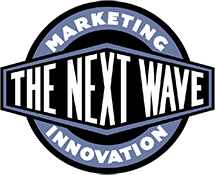The importance of offline in an online world
David Meerman Scott is becoming one of the social media Illuminati, with his books, talks, blog and tweets. The cool thing about all this social media stuff- is a lot of it is good old business common sense repackaged in a 2.0 format.
His post, which I’ve excerpted most of here- is one of those common sense things that corporate America needs to relearn. No matter how many amazing, expensive, beautifully shot car commercials we see- we still have to complete a transaction at the local level- with a, that’s right- car salesman. Note to GM- this is part of the reason Saturn started out so strong- you cut out the worst part of buying a car- but I digress, read what David says:
People want to do business with people. We’re human, and we crave interaction with people who know us. When you build content especially for your buyer personas, you build a relationship with people before you’ve even met them.
How about the opposite case? Have you recently visited a company Web site or blog and said, “Wow These guys understand me” Didn’t it make you feel different from how those boring old sites you usually see do?
When online content seems created by some nameless, faceless corporate entity, it doesn’t entice us. And we’re just not interested in doing business with that company. A corporate-brochure site will never start a World Wide Rave.
We all want to do business with other humans. We want to know there’s a breathing person behind the Web site or blog that we’re reading. And we want to know that those humans on the other side understand and want to help us. A great site or blog or YouTube video, created especially for us, drives us to action. We want to do business with people who understand our problems.
There’s no secret to building great online information. Start by understanding your buyer personas, not by hyping your products and services.
The reason social media driven sites work so well, as opposed to brochure sites is that there is a chance to have a conversation. People want to be heard, and the reason they are on your site is they are looking for answers for their problems. They probably came to your site because Google put you there as “the expert” on their search- it’s your job to prove them right.
In my recent search for a printer, the company that I eventually ended up doing business with seemed like the expert in the area of large format color printers. Their site was extensive, but what got me to call, was watching a youtube video explaining and comparing two printers. The people weren’t professional actors- they were the sales team. The production wasn’t slick, it was probably flip. When I called, the people on the phone seemed to care about me getting the best possible printer at the best possible price. It wasn’t about them- it was about solving my printing problems.
A lot can be said about advertising, design, strategy, marketing- but in the end, people do business with people they know. We tell this to our clients. We remind them constantly that if they aren’t in the evoked set of possible suppliers (either in Google or in top of mind) they don’t exist. What can you do to increase your perception of expertise and accessibility to your clients?
Think about it. If you want to talk about it, feel free to call me, 937.228.4433. We’re here to solve your social media and marketing problems by helping you know more people to do business with.
